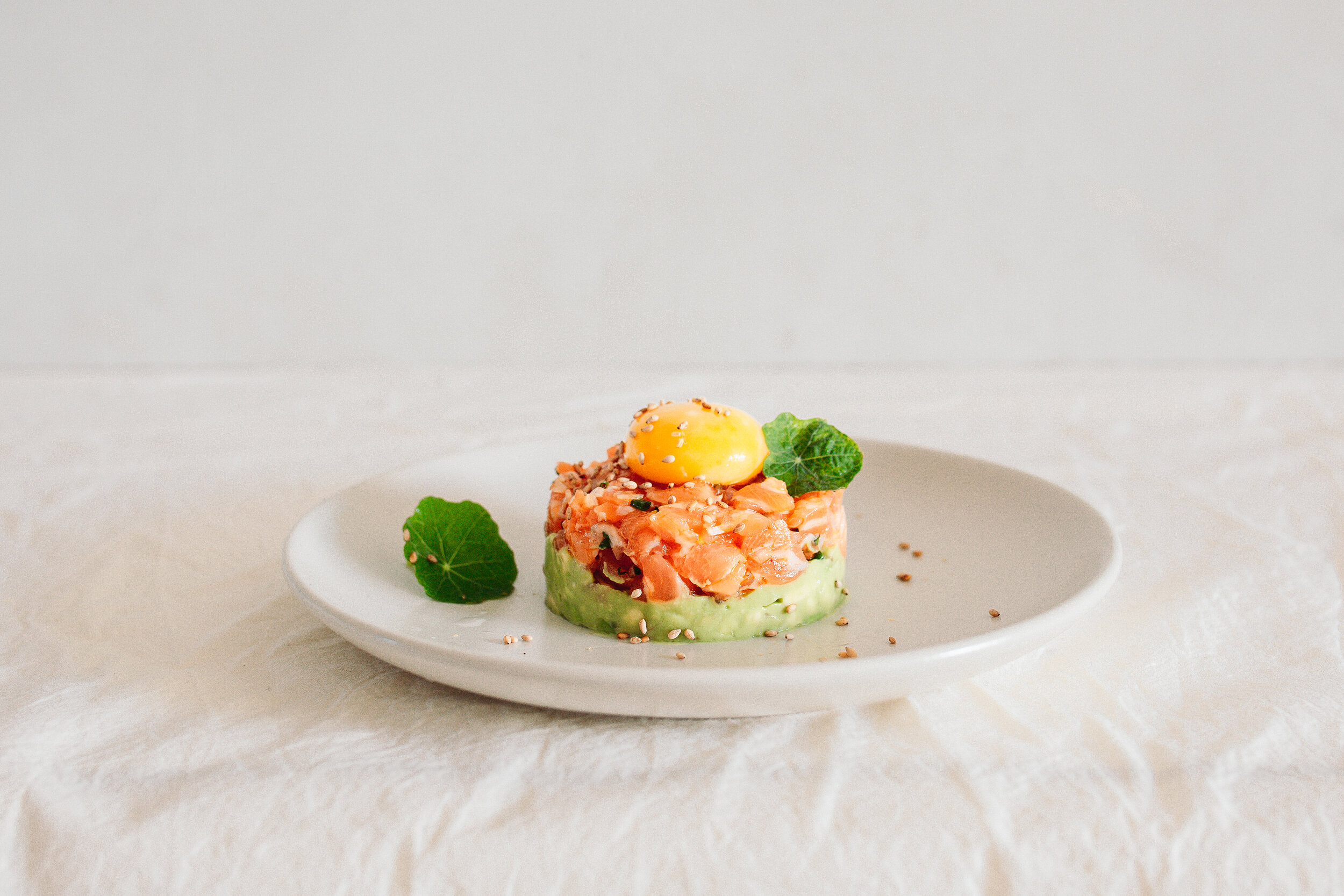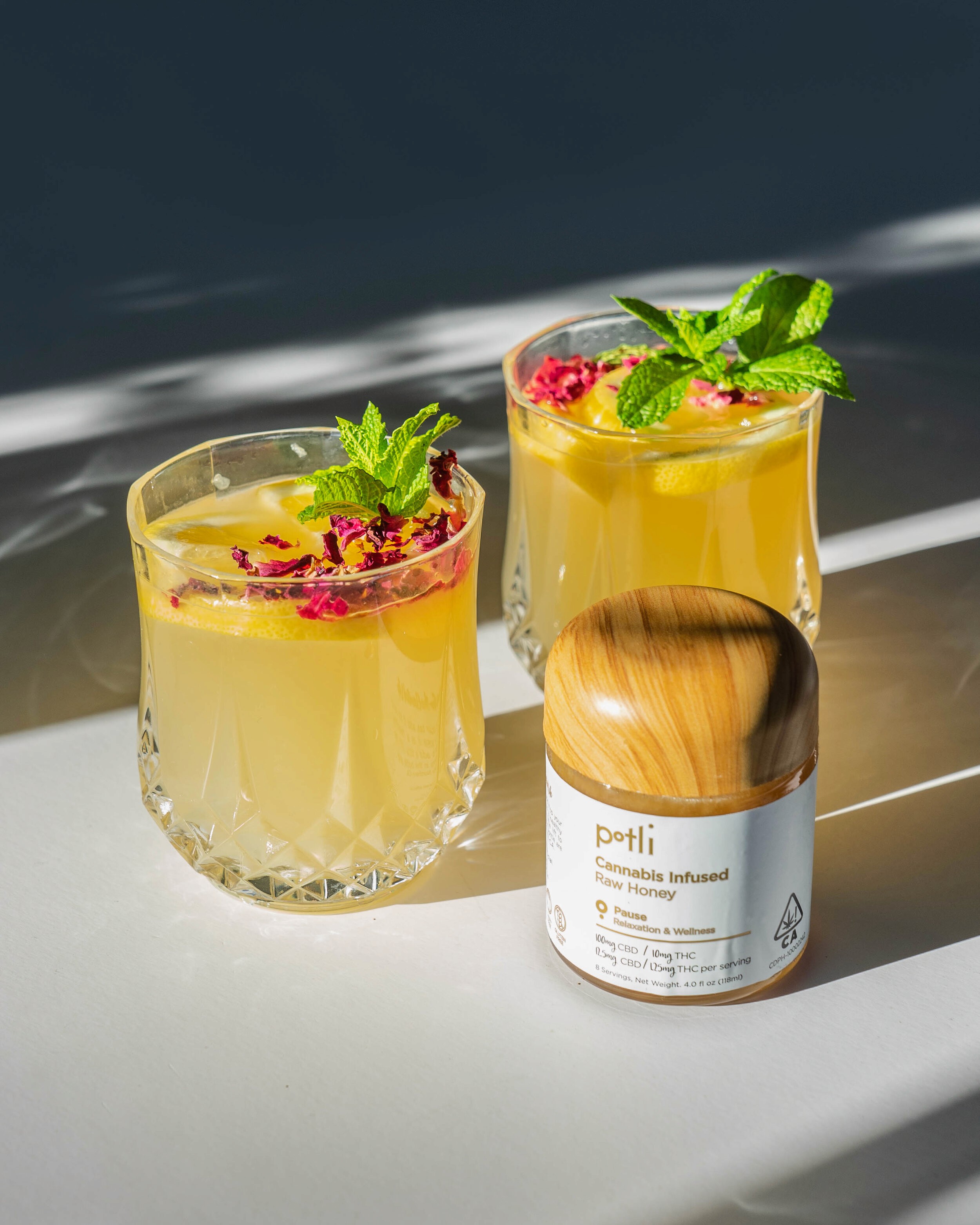
Mental Health
The Science of Sleep: PhD Adie Ray's Evening Rituals
Today we’re chatting with the intensely smart and super well spoken Adie Rae, PhD about the Science of Sleep and how cannabis may or may not contribute to our sleep health.
Fel: Doctor Adie, before we fully dive in, could you give us a quick overview of where you came from and how you got here?
Adie, PhD: My hypothesis my entire career, [has been] that we can use cannabis to reduce the harms of opioids. We can use fewer opioids, use lower doses and ultimately protect against overdose. That was kind of how my organic path and everything you know, finds its way to you, really.
Fel: Let’s talk about health hacking. How can we utilize cannabis for sleep?
Adie, PhD: I feel like a lot of folks may struggle with their cannabis journey because of a lack of awareness of tolerance and a lack of using it as a tool. Manage your tolerance by slowly increasing your dose because we have this hypothesis that you'll actually derive more medical benefit if you can just get up and over that initial psycho-activity point. In order to reap the sleep benefits, you have to feel a little bit less high.
What's really fascinating about our brains is that our response to THC is very dynamic. Even a two day fast from cannabis is enough to reset your CB1 receptors so that you're more sensitive to cannabis after just two days away.
Maintaining your sensitivity to THC through taking regular tolerance breaks is super, super important, and we don't talk enough about that because it is like everyone likes to think about cannabis as this totally harmless product. It's natural. It's organic. Yes, that's all true, but it also stimulates your brain's reward system and people do abuse it. You know, that's real. So let's operate within that reality rather than denying that reality. So manage your tolerance, build it up so that you can reap some of those ritualistic benefits, but also take regular breaks so that you remain sensitive.
People have wildly different responses to THC. If we think about this sweet spot right there, the amount of THC that I can feel, feels good without feeling any of the bad effects. That's the sweet spot in medicine. We call it the therapeutic window. You have to take enough medication to get the benefit, but not so much medication that you start having negative side effects.
Fel: Having all of this quantitative and qualitative data, what can you tell us at this point about using cannabis to help sleep and improve health overall?
Adie, PhD: We have to use cannabis with intention and that combination of the psychoactive substance interacting with your intended purpose or expectation. It's that interaction that causes a potential medical or health benefit.
There is genuine therapeutic power in rituals. There are published research studies on Navajo chant way rituals - where a shaman sing songs at you. So is there a therapeutic benefit there? Will the participants share and report it right? There is a relationship between the cared for and the caregiver. And there is a ritual or a container for healing to happen. So you could almost think of yourself as you're stirring your own cup of lemon water with your honey in the evening. You're acting as your own shaman, you're acting as your own health care provider. Nurturing that relationship with the part of yourself who is capable of giving the care and offering it to the other part of yourself, which needs caring for. There is definite, objective power in healing rituals.
Fel: Even though your career has been built on conducting quantitative research, it sounds like what you’re saying is that there’s a wealth of qualitative data that’s not commonly considered.
Adie, PhD: My colleague will meet with someone who will say, “I wish I had discovered this 20 years ago. My life has completely changed.” None of my statistics or my graphs or my papers can so clearly convey that testimonial.
Fel: What other practices can you recommend?
Adie, PhD: I would say that a part of the sleep ritual begins any time after you wake up, which is finding a way to incorporate some kind of exercise, even exercise “snacks” throughout the day. 10 minutes here and there, a couple of flights of stairs on your lunch break. That stuff absolutely contributes to what's going to happen when you put your honey in your tea.
Fel: Thank you so much for sharing your time with us.
Aug 24, 2023
Mental Health Matters —
Stay in the loop
Join our community of mental health specialists with our monthly newsletter.

Mental Health
The Science of Sleep: PhD Adie Ray's Evening Rituals
Today we’re chatting with the intensely smart and super well spoken Adie Rae, PhD about the Science of Sleep and how cannabis may or may not contribute to our sleep health.
Fel: Doctor Adie, before we fully dive in, could you give us a quick overview of where you came from and how you got here?
Adie, PhD: My hypothesis my entire career, [has been] that we can use cannabis to reduce the harms of opioids. We can use fewer opioids, use lower doses and ultimately protect against overdose. That was kind of how my organic path and everything you know, finds its way to you, really.
Fel: Let’s talk about health hacking. How can we utilize cannabis for sleep?
Adie, PhD: I feel like a lot of folks may struggle with their cannabis journey because of a lack of awareness of tolerance and a lack of using it as a tool. Manage your tolerance by slowly increasing your dose because we have this hypothesis that you'll actually derive more medical benefit if you can just get up and over that initial psycho-activity point. In order to reap the sleep benefits, you have to feel a little bit less high.
What's really fascinating about our brains is that our response to THC is very dynamic. Even a two day fast from cannabis is enough to reset your CB1 receptors so that you're more sensitive to cannabis after just two days away.
Maintaining your sensitivity to THC through taking regular tolerance breaks is super, super important, and we don't talk enough about that because it is like everyone likes to think about cannabis as this totally harmless product. It's natural. It's organic. Yes, that's all true, but it also stimulates your brain's reward system and people do abuse it. You know, that's real. So let's operate within that reality rather than denying that reality. So manage your tolerance, build it up so that you can reap some of those ritualistic benefits, but also take regular breaks so that you remain sensitive.
People have wildly different responses to THC. If we think about this sweet spot right there, the amount of THC that I can feel, feels good without feeling any of the bad effects. That's the sweet spot in medicine. We call it the therapeutic window. You have to take enough medication to get the benefit, but not so much medication that you start having negative side effects.
Fel: Having all of this quantitative and qualitative data, what can you tell us at this point about using cannabis to help sleep and improve health overall?
Adie, PhD: We have to use cannabis with intention and that combination of the psychoactive substance interacting with your intended purpose or expectation. It's that interaction that causes a potential medical or health benefit.
There is genuine therapeutic power in rituals. There are published research studies on Navajo chant way rituals - where a shaman sing songs at you. So is there a therapeutic benefit there? Will the participants share and report it right? There is a relationship between the cared for and the caregiver. And there is a ritual or a container for healing to happen. So you could almost think of yourself as you're stirring your own cup of lemon water with your honey in the evening. You're acting as your own shaman, you're acting as your own health care provider. Nurturing that relationship with the part of yourself who is capable of giving the care and offering it to the other part of yourself, which needs caring for. There is definite, objective power in healing rituals.
Fel: Even though your career has been built on conducting quantitative research, it sounds like what you’re saying is that there’s a wealth of qualitative data that’s not commonly considered.
Adie, PhD: My colleague will meet with someone who will say, “I wish I had discovered this 20 years ago. My life has completely changed.” None of my statistics or my graphs or my papers can so clearly convey that testimonial.
Fel: What other practices can you recommend?
Adie, PhD: I would say that a part of the sleep ritual begins any time after you wake up, which is finding a way to incorporate some kind of exercise, even exercise “snacks” throughout the day. 10 minutes here and there, a couple of flights of stairs on your lunch break. That stuff absolutely contributes to what's going to happen when you put your honey in your tea.
Fel: Thank you so much for sharing your time with us.
Aug 24, 2023
Mental Health Matters —
Stay in the loop
Join our community of mental health specialists with our monthly newsletter.

Mental Health
The Science of Sleep: PhD Adie Ray's Evening Rituals
Today we’re chatting with the intensely smart and super well spoken Adie Rae, PhD about the Science of Sleep and how cannabis may or may not contribute to our sleep health.
Fel: Doctor Adie, before we fully dive in, could you give us a quick overview of where you came from and how you got here?
Adie, PhD: My hypothesis my entire career, [has been] that we can use cannabis to reduce the harms of opioids. We can use fewer opioids, use lower doses and ultimately protect against overdose. That was kind of how my organic path and everything you know, finds its way to you, really.
Fel: Let’s talk about health hacking. How can we utilize cannabis for sleep?
Adie, PhD: I feel like a lot of folks may struggle with their cannabis journey because of a lack of awareness of tolerance and a lack of using it as a tool. Manage your tolerance by slowly increasing your dose because we have this hypothesis that you'll actually derive more medical benefit if you can just get up and over that initial psycho-activity point. In order to reap the sleep benefits, you have to feel a little bit less high.
What's really fascinating about our brains is that our response to THC is very dynamic. Even a two day fast from cannabis is enough to reset your CB1 receptors so that you're more sensitive to cannabis after just two days away.
Maintaining your sensitivity to THC through taking regular tolerance breaks is super, super important, and we don't talk enough about that because it is like everyone likes to think about cannabis as this totally harmless product. It's natural. It's organic. Yes, that's all true, but it also stimulates your brain's reward system and people do abuse it. You know, that's real. So let's operate within that reality rather than denying that reality. So manage your tolerance, build it up so that you can reap some of those ritualistic benefits, but also take regular breaks so that you remain sensitive.
People have wildly different responses to THC. If we think about this sweet spot right there, the amount of THC that I can feel, feels good without feeling any of the bad effects. That's the sweet spot in medicine. We call it the therapeutic window. You have to take enough medication to get the benefit, but not so much medication that you start having negative side effects.
Fel: Having all of this quantitative and qualitative data, what can you tell us at this point about using cannabis to help sleep and improve health overall?
Adie, PhD: We have to use cannabis with intention and that combination of the psychoactive substance interacting with your intended purpose or expectation. It's that interaction that causes a potential medical or health benefit.
There is genuine therapeutic power in rituals. There are published research studies on Navajo chant way rituals - where a shaman sing songs at you. So is there a therapeutic benefit there? Will the participants share and report it right? There is a relationship between the cared for and the caregiver. And there is a ritual or a container for healing to happen. So you could almost think of yourself as you're stirring your own cup of lemon water with your honey in the evening. You're acting as your own shaman, you're acting as your own health care provider. Nurturing that relationship with the part of yourself who is capable of giving the care and offering it to the other part of yourself, which needs caring for. There is definite, objective power in healing rituals.
Fel: Even though your career has been built on conducting quantitative research, it sounds like what you’re saying is that there’s a wealth of qualitative data that’s not commonly considered.
Adie, PhD: My colleague will meet with someone who will say, “I wish I had discovered this 20 years ago. My life has completely changed.” None of my statistics or my graphs or my papers can so clearly convey that testimonial.
Fel: What other practices can you recommend?
Adie, PhD: I would say that a part of the sleep ritual begins any time after you wake up, which is finding a way to incorporate some kind of exercise, even exercise “snacks” throughout the day. 10 minutes here and there, a couple of flights of stairs on your lunch break. That stuff absolutely contributes to what's going to happen when you put your honey in your tea.
Fel: Thank you so much for sharing your time with us.
Aug 24, 2023
Mental Health Matters —
Stay in the loop
Join our community of mental health specialists with our monthly newsletter.
Guiding you to a high functioning state of mind.
We adore a great partnership! Drop us a line
2250 Jerrold Ave San Francisco CA 94124
Guiding you to a high functioning state of mind.
We adore a great partnership! Drop us a line
2250 Jerrold Ave San Francisco CA 94124
Guiding you to a high functioning state of mind.
We adore a great partnership! Drop us a line
2250 Jerrold Ave San Francisco CA 94124


